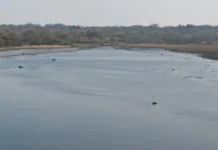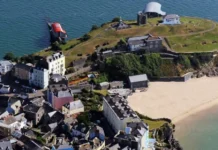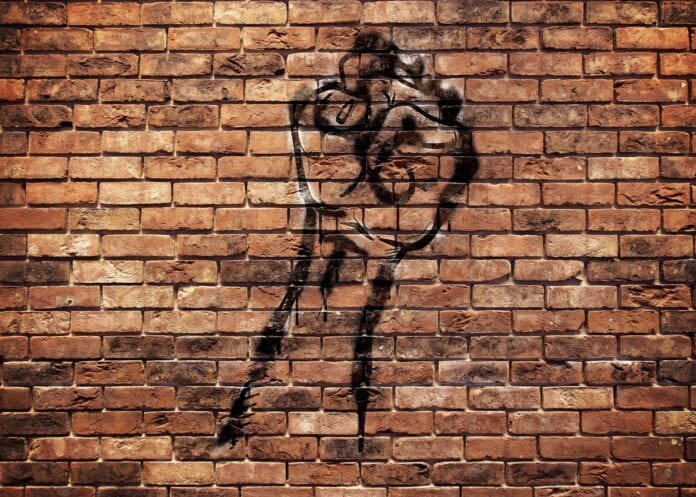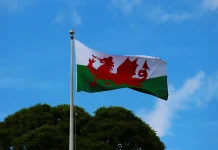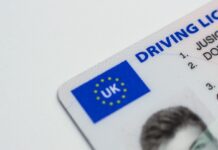I must state that because this is an article, I do not have enough space to write a book and anyway, many books have already been written. So I have had to narrow down the history but I hope you will gain important knowledge about Black History and what black people have suffered thanks to Britain’s colonial power. Hopefully it will inspire you to find out more.
I would like to thank the following writers whose work I have used for my research to produce this article:
Reni Eddo-Lodge – ‘Why I’m no longer talking to white people about race’
David Olusoga – Historian and broadcaster
Afua Hirsch – Author and Guardian columnist
The Guardian newspaper in general
Maya Goodfellow – Hostile Environment
Myself – Tara Fisher’s living history
It was when I saw people talking about White Lives Matter and All Lives Matter, I realised that I needed to write an article on Black History to explain exactly how black people have been treated over the centuries in Britain, treatment which white people have never seen or never known. We have to make it clear that when we say that Black lives matter we are not saying that white lives or all lives don’t matter. What we are trying to show is that we have ignored the way black people have been treated and we now need to really look at Black History in this country and truly understand why black people have had enough.
Now let’s go back to 1562, nearly 500 years ago. Slave trading began in Britain. 95 years later, Edward Colston started transporting slaves. Colston started in Bristol but in Liverpool, 1 and half million African slaves passed through Liverpool docks. When novels mentioned Jamaica, you knew that the big estates had slave estates and were earning their money from vile torture. When David Olusoga, the British historian, visited the slave museum in Jamaica and saw the instruments of torture used on the slaves by the slave drivers, he had to come out into the hallway and recover from the shock, looking at those awful things. Many Scots went out to Jamaica to become slave drivers. In the 1700s Robbie Burns had the intention to be a slave driver but his poetry began to take off so he cancelled it.
White wealth on the profits from slavery were embedded in British society. Black women’s reproductive organs were part of the industry of slavery. Women slaves were raped regularly by white slave owners. The slaves were called “black cattle”. Even if slaves died at sea, the ships routinely being followed by sharks as dead bodies were thrown overboard, the slave owners were able to claim insurance on their human property. In the British colonies, all plantations were run on slave labour. In Mansfield Park, a novel by Jane Austen, it is made clear that the lord of the manor had plantations in Jamaica. Many British people lived comfortably off enslaved labour and , as David Olusoga showed, there were records that demonstrated even working class and middle class whites had one or two slaves in Jamaica which gave them a reasonable income. The records speak for themselves. In the Caribbean, Britain received 200 years of free labour. Britain modernised its economy on the lives of slaves. Afua Hirsch,
“ The systemic poverty that remains in the Caribbean can be directly traced to the era of enslavement and colonialism, at the end of which Britain walked away leaving 60% of the region’s black inhabitants functionally illiterate.”
“ The high diabetes rate has left two of Britain’s former colonies, Barbados and Jamaica, vying for the dubious honour of being the per capita amputation capital of the world.”
For 300 years, the sugar industry ran on the slave trade as free labour and the slaves’ diet was based on sugar.
1899-1902 – The Boer War in South Africa was where the British created the first Concentration Camps
The Abolition of slavery act took place in 1833 and 46,000 British slave-owning citizens were compensated for the loss of their slaves, after all they were just property and were seen as sub-human and we still view black people today like that.
I can hear the intake of breath at such a horrible accusation, but how many of us have heard people doing a diatribe about having too many immigrants in this country. I have heard racist comments around me when shopping locally. I have seen a UKIP political stall in Llanelli market with people openly saying that we should send them back to where they came from.
In 1904, Harold Moody arrived in Bristol from Jamaica aged 22. He wanted to be a doctor and he, like many West Indians, saw Britain as the Mother Country. Instead he found a country that hated his colour. He found it difficult to find somewhere to stay. He eventually graduated but Kings College Hospital would not take black doctors. A local government organisation told him that “the poor people would not have a nigger attend to them.”
He was a strong practising Christian and with these views, he decided to open his own practice.
1910-2001 the Robertsons Jam Golliwog – It took the company 91 years to eventually get rid of the racist doll. Then I heard a conversation the other week of a knitting group where an Asian woman had joined and all the other women were white. The next thing one of the white women brought in a golliwog to copy for knitting. The Asian woman objected but they kept saying, “Well, it’s our heritage,” and eventually the Asian woman left which was what was wanted by the white knitting group. All of them said they were not racist.
First World War
Over one million Indian soldiers or sepoys as they were known fought for Britain which had promised them independence so they felt that they were fighting for independence for India. If injured, Indian troops were kept segregated at a Brighton hospital which was surrounded by barbed wire. After all, they couldn’t have these nasty brown people mixing with locals, could they? 74,00 died fighting in the war but Britain refused to keep its promise. India got its independence finally in August 1947.
West Indians also came to fight and were very badly treated. Towards the end of 1918, white soldiers got a pay rise and the West Indians were excluded. They immediately went on strike and set up a petition to be sent to the Secretary of State. Rebellion took place which was crushed. The mistreated soldiers returned to the Caribbean and the struggle for independence against Britain began.
1919, black ex-soldiers who stayed on in Britain were targeted by white racist groups.
4 June – Liverpool,- 100 black factory workers lost their jobs after white workers refused to work with them
Another day, a Caribbean man was stabbed in the face by 2 white men. Fights broke out as police ransacked black people’s homes.
The most horrific race hate crime took place. Charles Wootton, a black seaman was thrown into the dock by a white crowd. He was then pelted with bricks until he drowned. It was the British version of a lynching.
6 June 1919 – Newport, there was a rumour that a black man had been rude to a white woman. A braying mob attacked black men in the area and a white man was stabbed.
11th June- a vehicle taking white women and black men on a lovely day out in Cardiff had rocks thrown at them by local people.
A week later, a white woman known to have married a black man was attacked by a crowd of angry white people and they stripped her naked.
The British state responded with REPATRIATION.
September 1919 600 black people were sent back “ where they came from”. Britain had no sense of responsibility about their colonies. Black and Brown people were the only ones who suffered.
In 1931 Dr. Harold Moody formed the League of Coloured Peoples.
In 1933 he published “The Keys”, one of which was to improve relations between the races. He had an argument with Manchester Hospital about taking on black nurses and the matron wrote,
“ We have never taken coloured nurses for training here. The question was once raised at Nursing Committee and there was a definite rule that no-one of negroid extraction can be considered.”
Second World War – The ghurkas fought on the British side and won the most Victoria Crosses for their enormous courage. After the war, they were plonked on Brighton Pier and only received their pensions in recent years with the help of Joanna Lumley as her father was an officer with the Ghurkas because there were no Ghurka officers. They were always white officers.
In 1948, the British Nationality Act was passed. This gave Commonwealth citizens the SAME RIGHTS TO RESIDE here as British subjects.
The Windrush ship arrived.
By 1958, there was an unwritten colour bar which was particularly strong in Nottingham which caused riots in August of that year. The film, South Pacific, came out and its theme was racism. An amazing song was written about race which rang true for Britain at the time:
You’ve got to be taught to hate and fear
You’ve got to be taught from year to year
It’s got to be drummed in your dear little ear
You’ve got to be taught to be afraid
Of people whose eyes are oddly made
And people whose skin is a different shade
You’ve got to be taught before it’s too late
Before you are six, or seven or eight
To hate all the people your relatives hate
You’ve got to be carefully taught.
In Notting Hill, groups of teddy boys roamed the streets calling themselves “Nigger Hunters”. There were signs on windows of B&Bs saying NO BLACKS, NO DOGS, NO IRISH. There were riots, with people roaming the streets, shouting racist abuse, showing swastikas and throwing Molotov cocktails. Over a hundred white people arrested for hooliganism !!!
1962 – the black people were no longer citizens but immigrants and they needed work permits.
1963 – 19 year old Jamaican, Guy Bailey went for a job interview with the Bristol Omnibus Company. The receptionist on the phone said,” your 2 o’clock appointment is here. But he’s black”
Guy heard the manager reply,” Tell him no vacancies. All vacancies filled.”
This Bristol bus company was well-known for being a whites-only employer. People thought that it was only the Americans who had segregation. Britain’s colour bar was more insidious. The only way to fight this was with power which people of colour did not have. The local TGWU as a completely racist organisation and worked hand in hand with the company to keep it white. The spectre of Edward Colston still roaming the streets of Bristol !!
1965 –Tepid Race Relations Act where racial discrimination was no longer legal in public places. It did not apply to shops or private housing.
1968 – stronger Race Relations Act racial discrimination illegal in housing, employment, public services but black and Asian people were not even aware that it existed
In the late sixties, the National Front came to the fore, wrapping itself in the Union Jack and the St. George’s flag and turning the support for the flags for racism, like the Confederate flag in the USA. This now becomes my own history as I spent many years fighting the National Front, on my own and with the Anti-Nazi League. One day my mother and I were out shopping in Barking and we saw the National Front having a stall of hate. My mother was so angry that she approached them and tore a strip off them. One skinhead’s response was,” Don’t worry, love, when we bring back the gas ovens, you’ll be the first in there.” This was and still is the mentality of racists.
So to return to the compensation. The 46, 000 people received their compensation, some for one slave or the massive estates received a massive amount. In present day money, the payout was worth billions and the slaves received nothing. Men today are still living on the slave money as money breeds money, like David Cameron, Peter Bazalgette whose grandfather designed the London sewers,Earl of Harewood, the Queen’s cousin, George Orwell, the left wing writer, William Gladstone, a Victorian Prime Minister, Douglas Hogg, a politician. There are many more.
Black people feel strangers in their own country especially with white people waving union jacks shouting,” We want our country back “.
Ambalavaner Sivanandan, the Director of the Institute of Race Relations said in 2008,
“ We are here because you were there.”
I was very much aware of the SUS laws in the 70s which, although based on the 1824 vagrancy act, it came to mean that you could be arrested on suspicion of being a black man. In 1981, the sus laws were scrapped and stop and search was brought in instead. Research in 2015, not so long ago, after all, shows that black people were 17 times more likely to be stopped and searched. A successful black businessman was being stopped on a regular basis because he drove a Rolls Royce. The police could not accept that a black man could own a Rolls Royce. It had to be stolen. Eventually he made an official complaint against the police and then the harassment stopped.
In the early 1980s the country was in recession. Unemployment for black and Asian men rose by 20% and white men by 2%.
I lived in Newham from 1980 to 1986 and was a supporter of the Newham Monitoring Project which was set up to monitor the police. I attended a meeting locally to do with community policing and as the police inspector carried on talking, I realised they were wanting to use local people as spies so I spoke up against it. The police inspector chased after me at the end and asked me if I was a social worker. I replied no. He asked me if I was a probation officer. I said no. He asked me if I was a teacher. Officially I was a lecturer, so I did say no. I didn’t want to give him the pleasure of knowing that he had recognised me as the enemy, one of the people who saw the East End police for the racists they were.
In 1982, police cadets at Hendon Police College were asked to write anonymous essays about “Blacks in Britain”. This is a quote from a sample essay,
“Blacks in Britain are a pest. They come over here from some tin-pot banana country where they lived in huts and worked in the fields for cultivating rice and bananas, coconuts and tobacco, and take up residence in our already over-crowded island. They are, by nature unintelegent and can’t at all be educated sufficiently to live in a civilised society of the Western world.” Since these essays were anonymous, we never knew whether those cadets ended up as police officers on the streets of London.
In 1984, black members of the Labour party wanted to form black sections but the Labour party Executive would not accept this and Neil Kinnock called them “racially segregationist”
In 1987, Linda Bellos, from the Greater London Council, set up Black History Month. It lasted for only 2 years because Margaret Thatcher stopped the budget. Linda Bellos wanted to educate people with the true Black History.
In the late 1980s, the police were particularly racist and violent. They shot Cherry Groce who had done nothing and she was permanently paralysed.
Cynthia Jarrett, who had done nothing, was shot and killed.
1985 the race riots exploded in London because of the way black people were being treated.
2011 London riots were a repeat of 1985.
As I have said British racism is insidious. The American racism was much more obvious with the segregation and Rosa Parks on the bus and Martin Luther King etc. We did not discuss black history in schools so people remained ignorant. Racism is in our system and it will take education and a real struggle to change things.
Let’s move on to the present day.
During Lockdown, black men were stopped and searched 20,000 times in London, the equivalent of more than a quarter of all black 15-25 year olds in the capital.
July 9 2020, Bianca Williams, a black athlete, is stopped with her boyfriend and baby and treated most disgracefully by the police and their search produced nothing apart from great distress.
Today, nylons have names for colours and the skin colour one is called Nude. The implication is that only white skin is the proper skin colour. Which nude?
The police watchdog is to hold an inquiry into allegations of racial discrimination.
The black MP Dawn Butler has had to close her office as she has had death threats and attacks on her staff and her office. The MP Diane Abbott had the most death threats and trolling on social media than any other MP.
Help keep news FREE for our readers
Supporting your local community newspaper/online news outlet is crucial now more than ever. If you believe in independent journalism, then consider making a valuable contribution by making a one-time or monthly donation. We operate in rural areas where providing unbiased news can be challenging. Read More About Supporting The West Wales Chronicle














